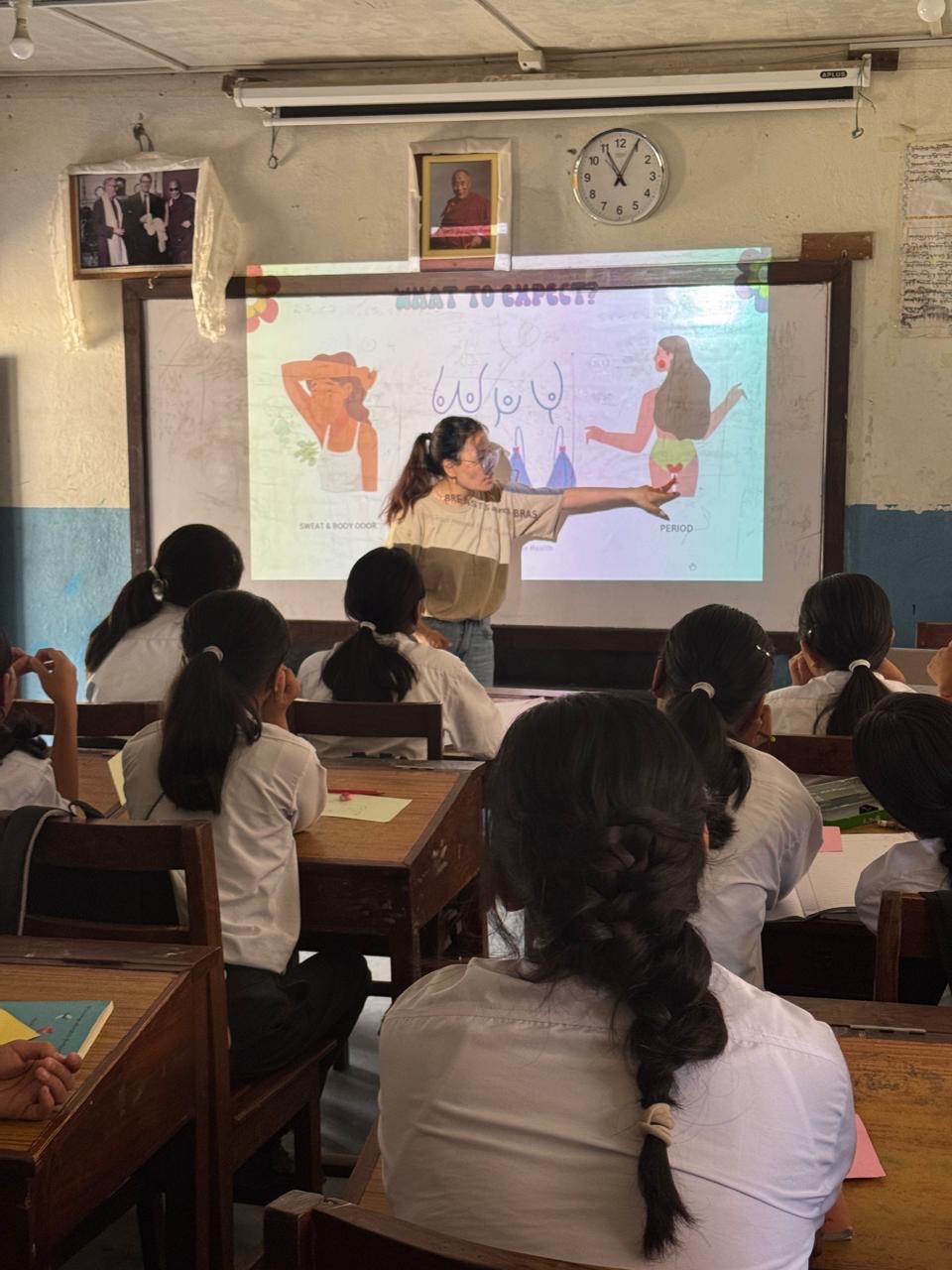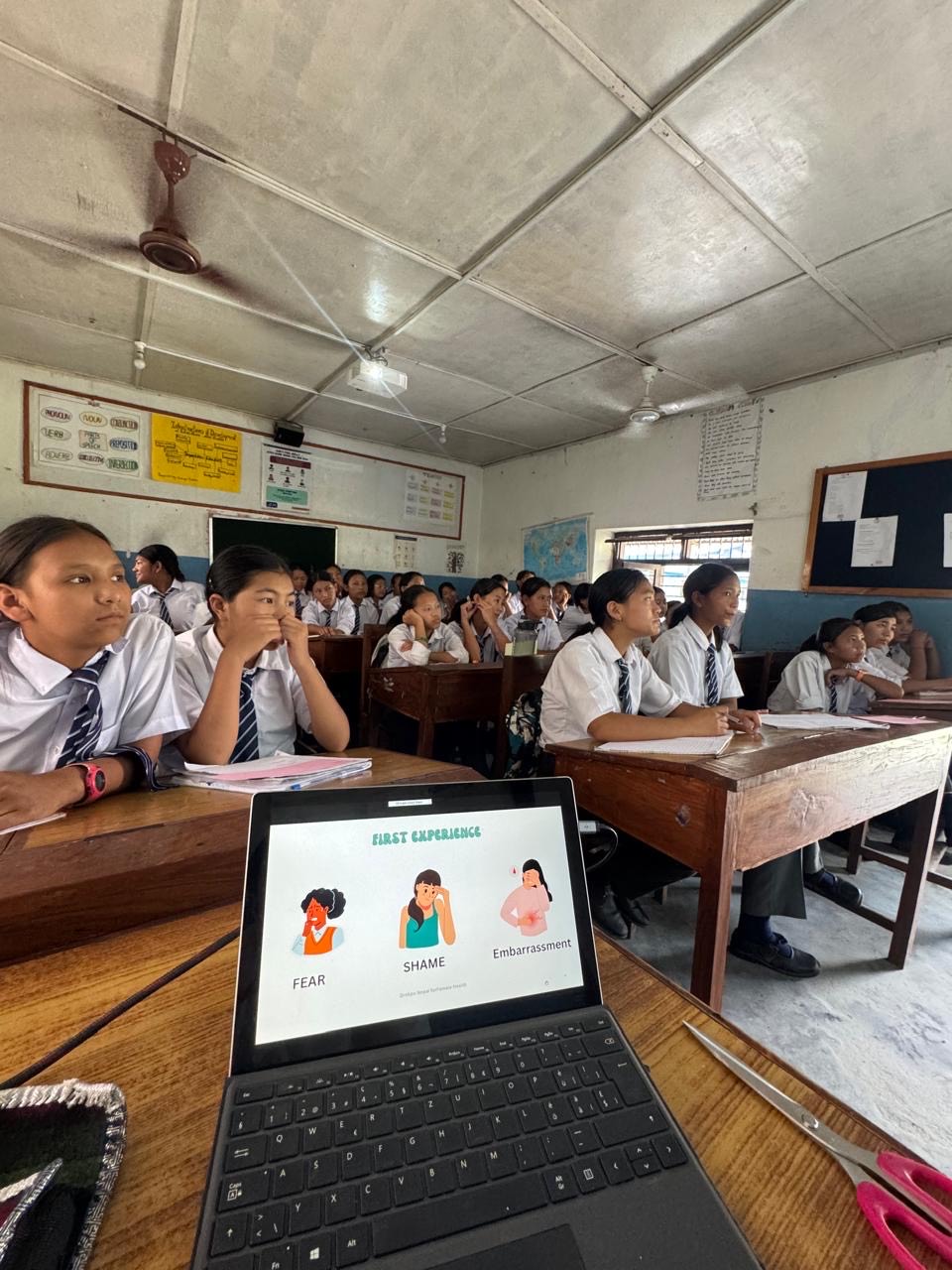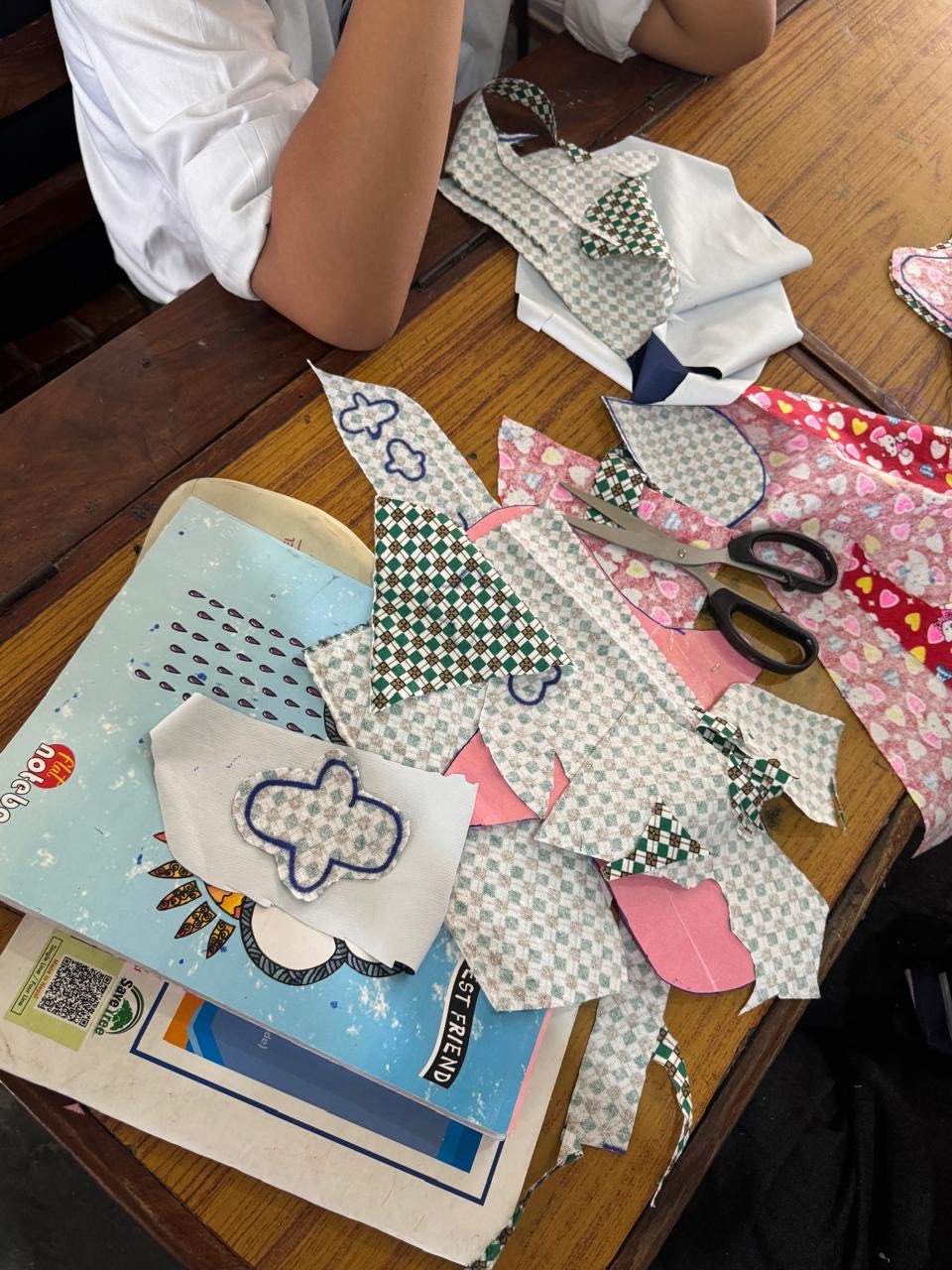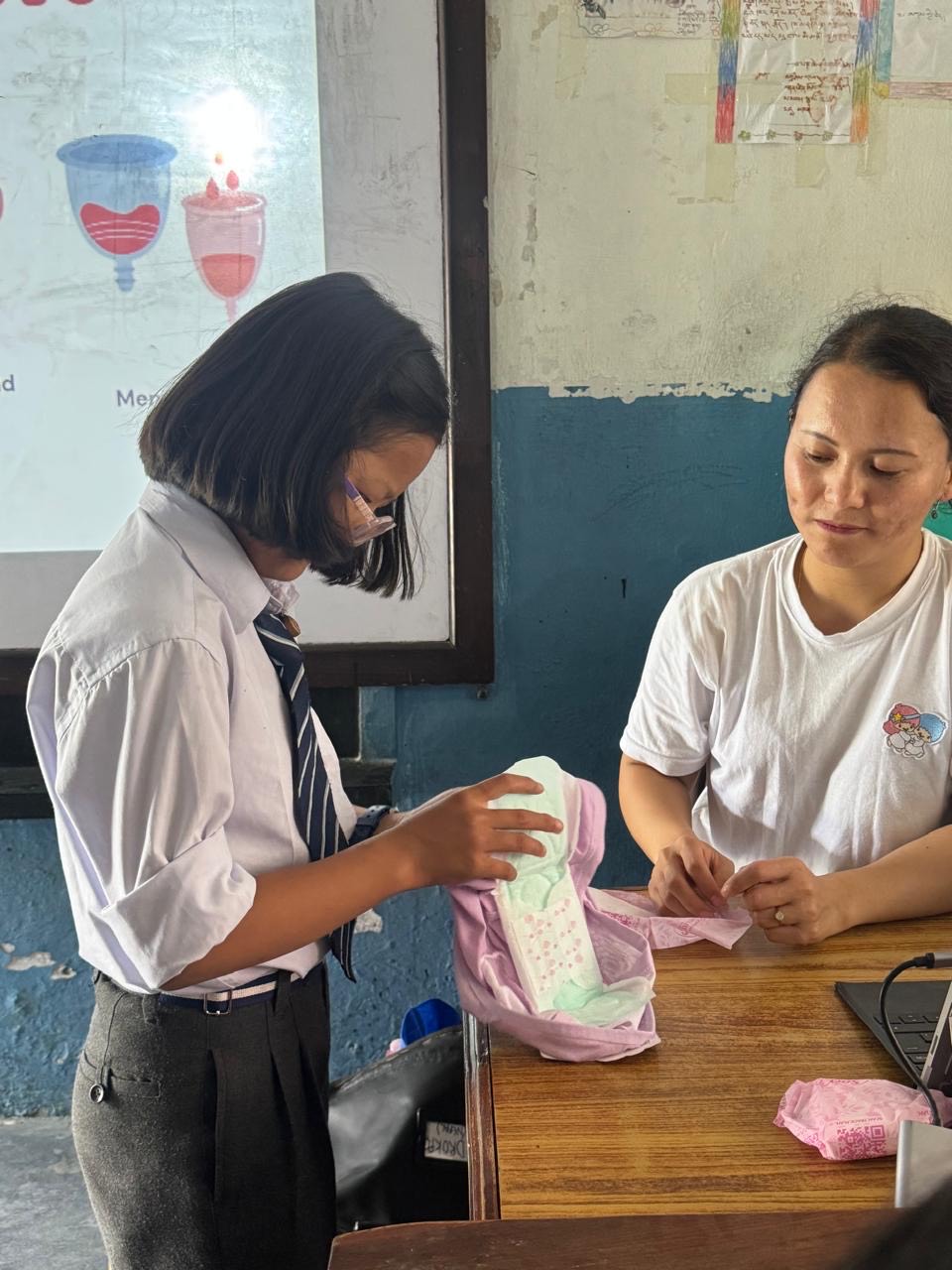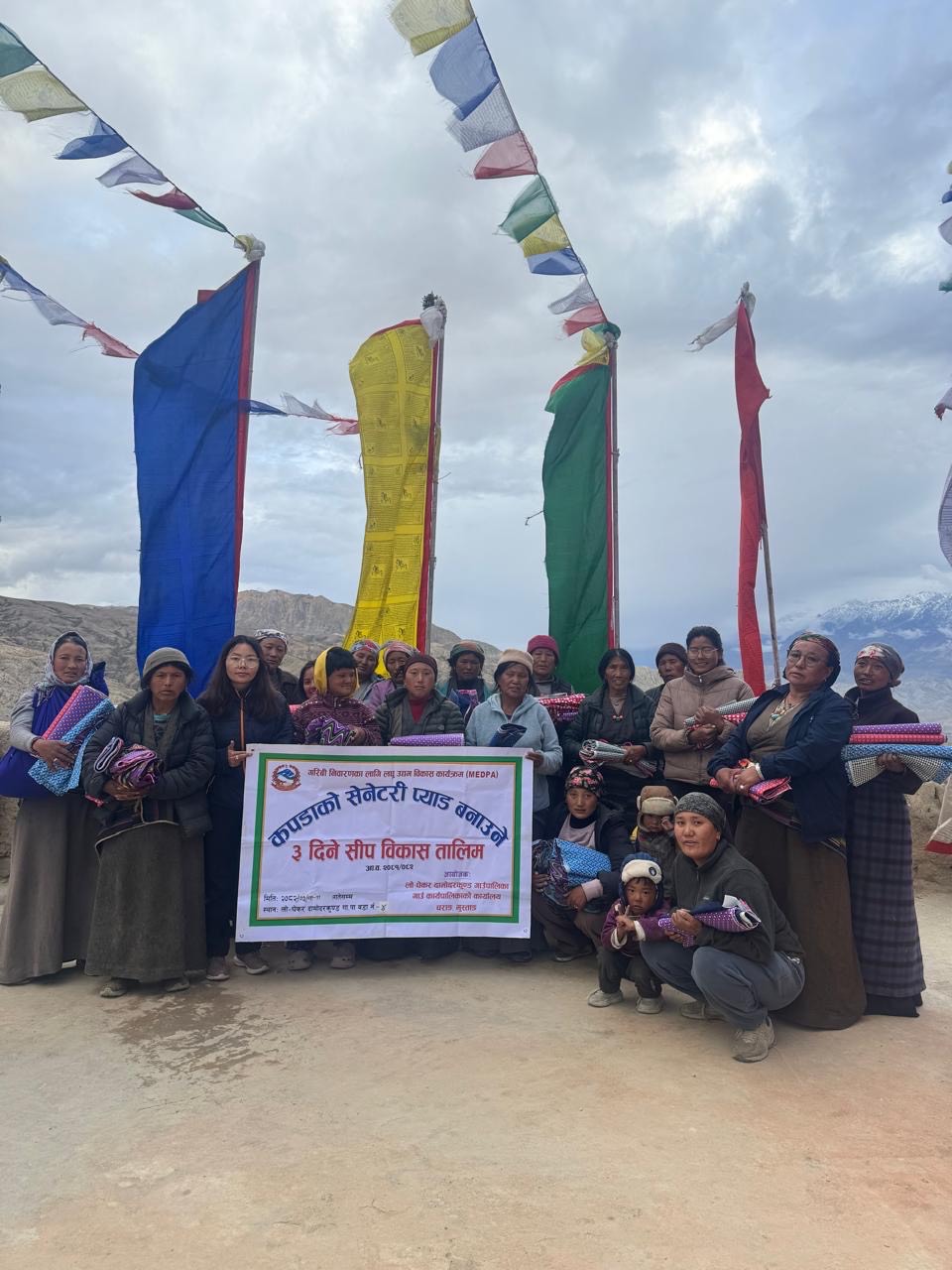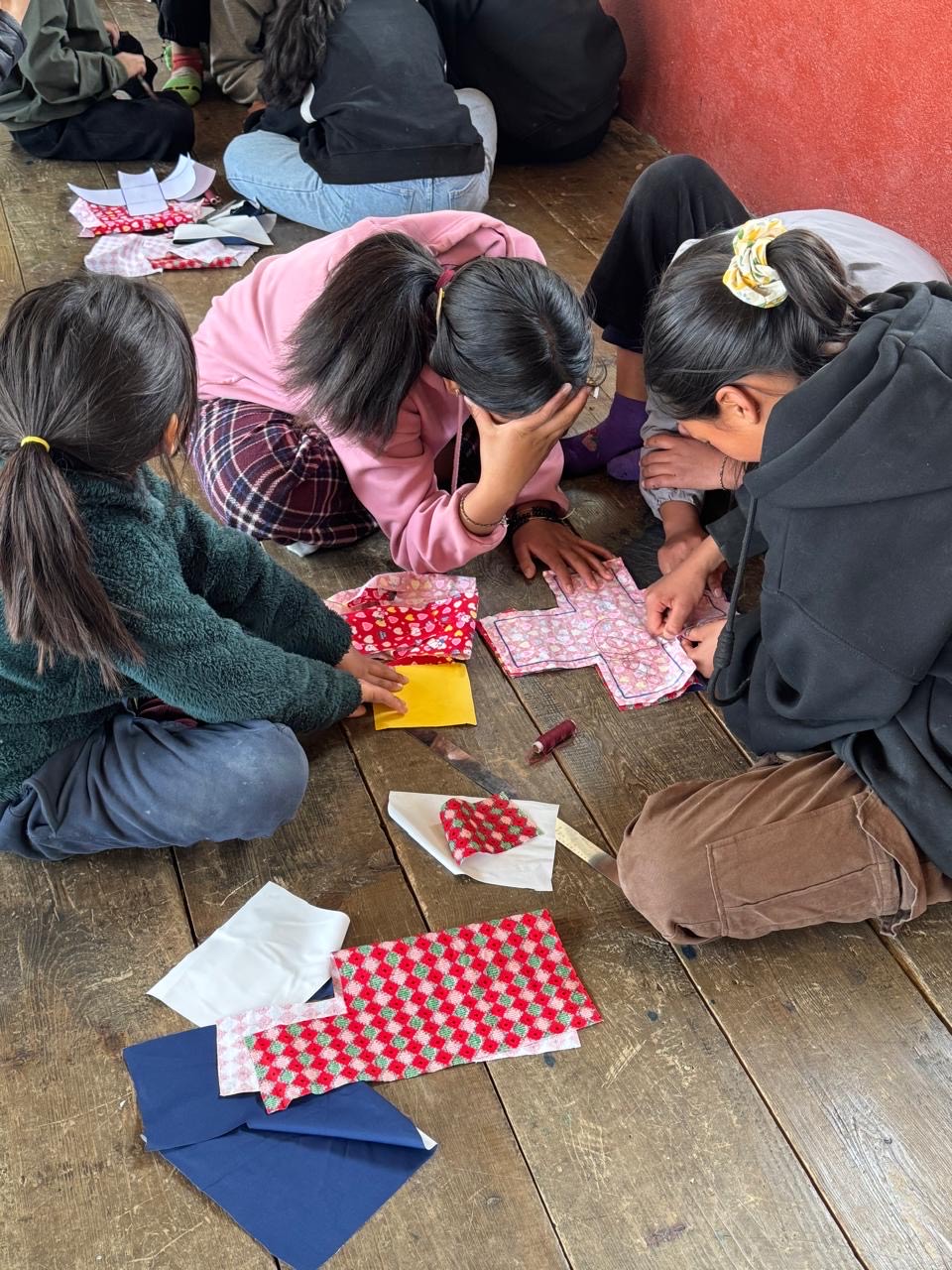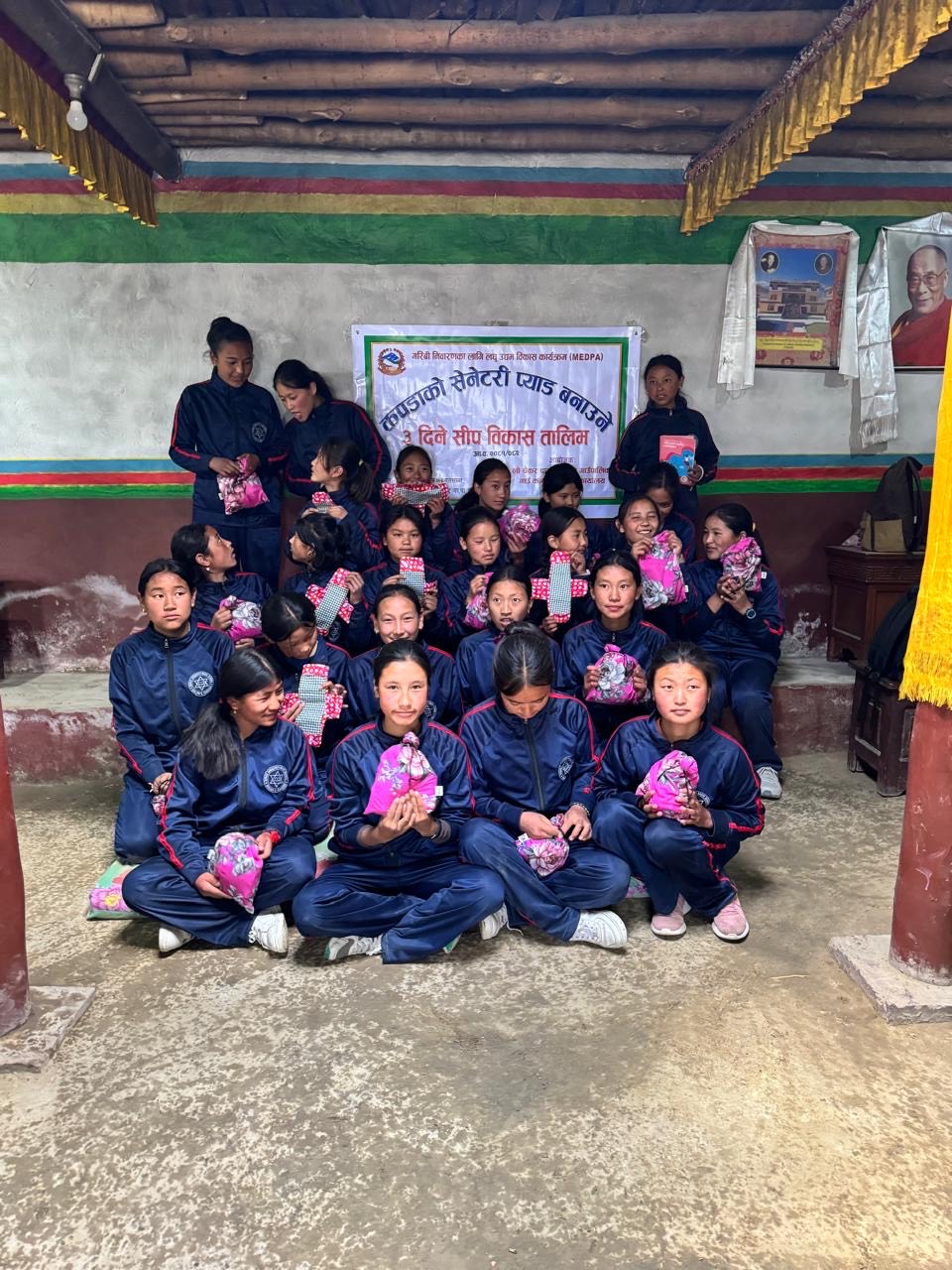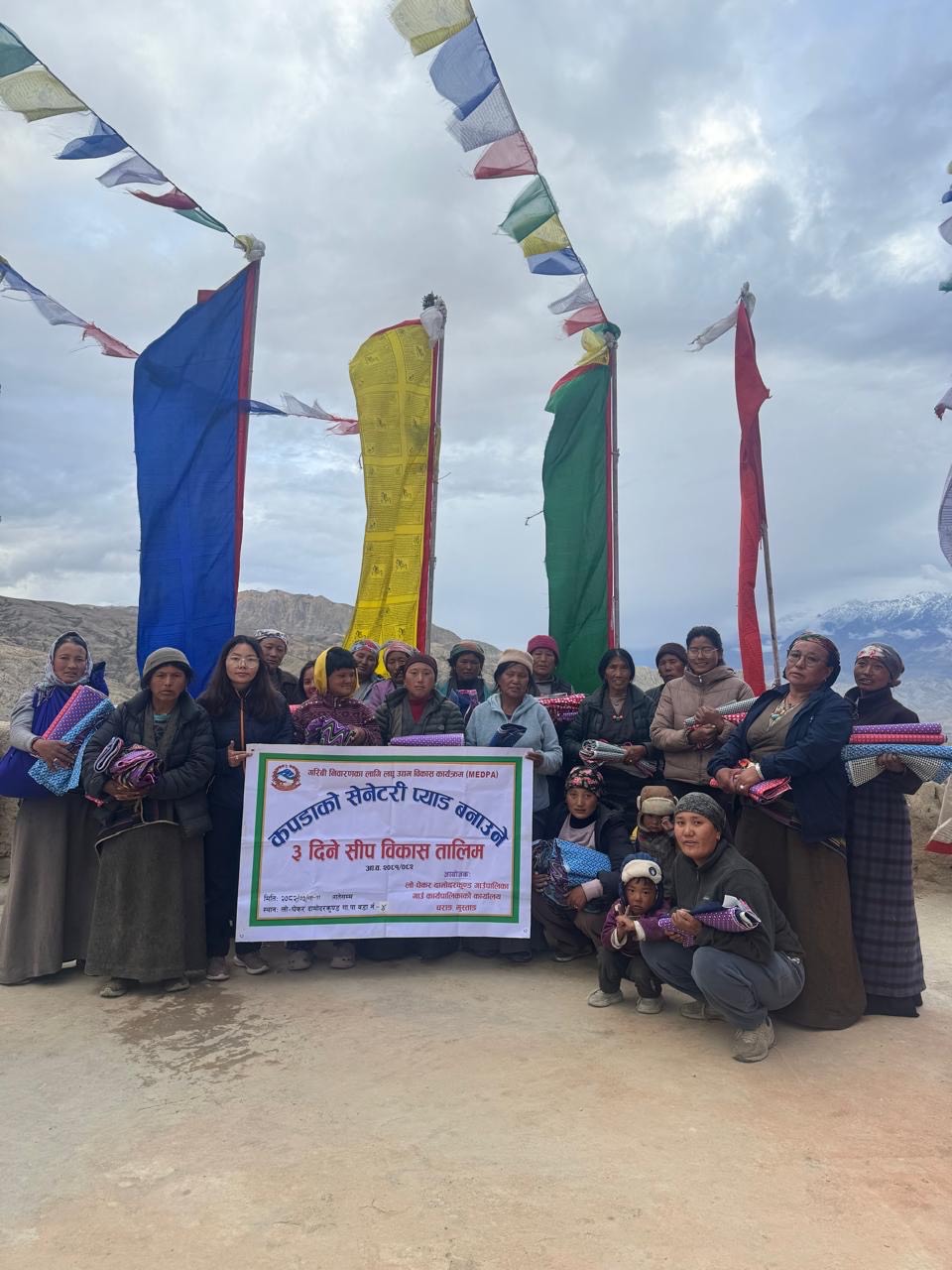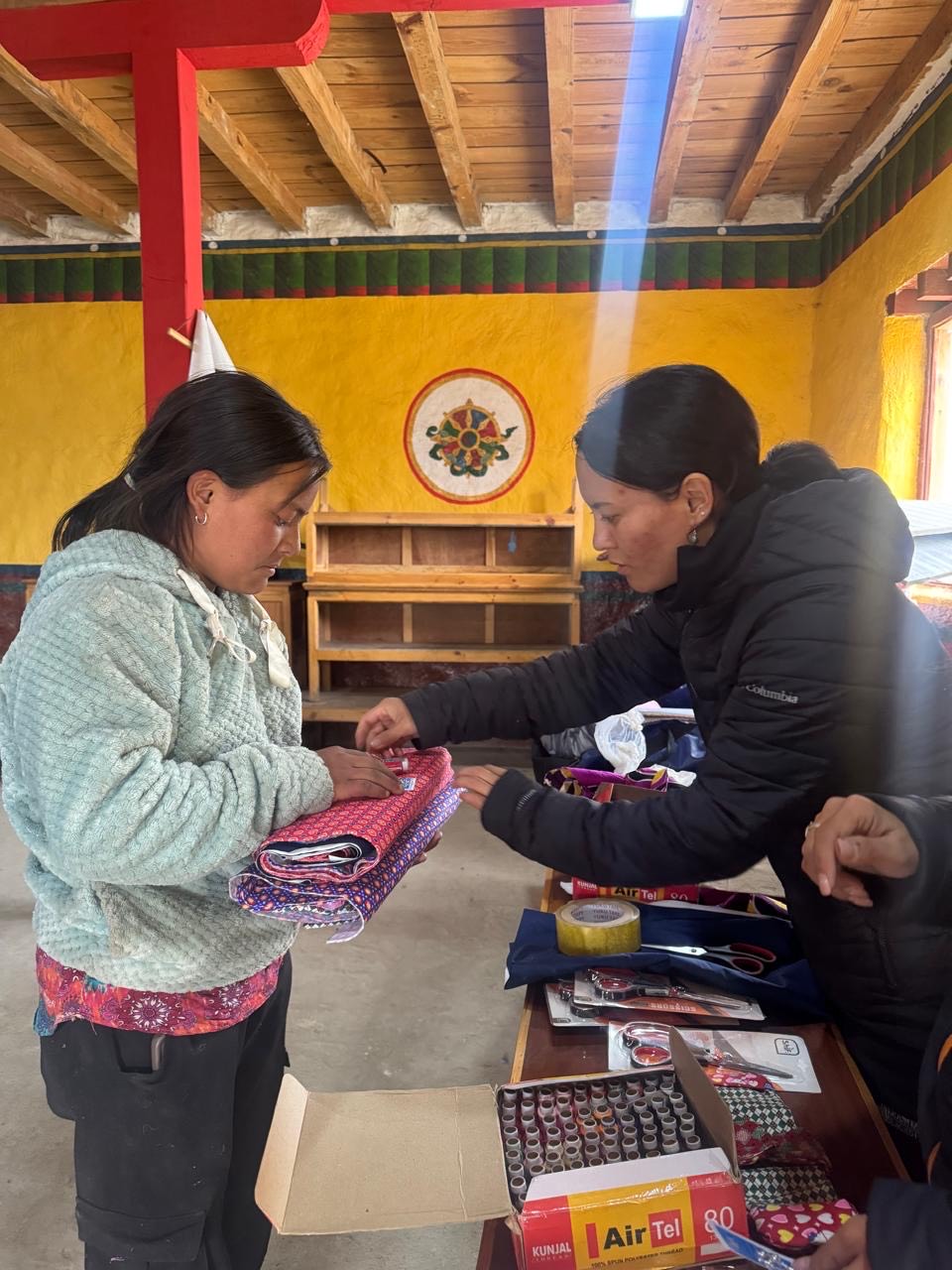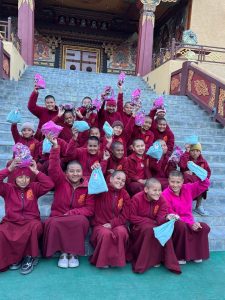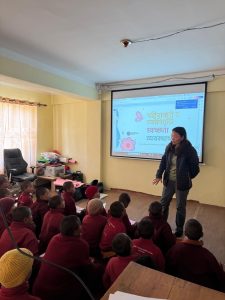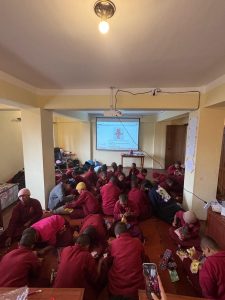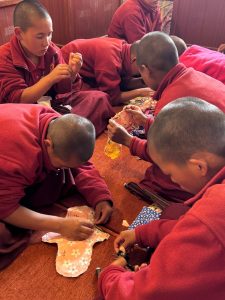We are proud to share a meaningful milestone in our continued efforts at Drokpo Nepal. In partnership with Conscious Connection Foundation (CCF) and Conscious Connection Nepal (CCN), and in collaboration with Wards No. 1–5 of Lo-Ghekar Damodarkunda Rural Municipality, we recently completed a powerful three-week Menstrual Hygiene Management (MHM) outreach in Upper Mustang region.
We had the privilege of connecting with remote communities, including Tsarang, Marang, Dakmar, Gami, Gheking, Ghara, and Thangya villages. In addition to these locations, we also worked closely with Tsarang Nunnery, Gami School, and Gheling School - spaces that play a vital role in local education and community life. Each stop offered meaningful opportunities for dialogue, learning, and collaboration.
We had the privilege of connecting with remote communities, including Tsarang, Marang, Dakmar, Gami, Gheking, Ghara, and Thangya villages. In addition to these locations, we also worked closely with Tsarang Nunnery, Gami School, and Gheling School - spaces that play a vital role in local education and community life. Each stop offered meaningful opportunities for dialogue, learning, and collaboration.
Together, over 500 women in upper Mustang have received menstrual hygiene training - an important step toward breaking stigma and advancing health equity in this remote region. Overall, we conducted ten sessions, including visits to two schools and a nunnery, as well as an additional session at a school in Pokhara - made possible through the generous support of the American Himalayan Foundation (AHF).
We distributed over 190 menstrual health kits, each containing two pairs of underwear, a bar of soap, and three reusable cloth pads. We also provided extra materials and training to help participants make their own pads. These kits, though simple, go a long way in supporting personal dignity and everyday well-being.
One of the most impactful aspects of this trip was being able to facilitate the sessions in the local language, Lokhé. For many participants, this was the first time they had the chance to talk openly about menstruation in a space that felt safe, respectful, and culturally familiar.
In addition to fostering open dialogue, the sessions covered a wide range of important topics,
including:
- Menstrual health and hygiene education
- Training women, students, and nuns to make reusable cloth pads
- Distribution of hygiene kits (reusable pads, soap, and underwear)
- Debunking common myths and misconceptions around menstruation
- Understanding menopause: its types, symptoms, and management
- Menstruation in the LGBTQ+ community, especially for trans men and non-binary
individuals
- Menstrual challenges for women and girls with disabilities
- Family planning education and options
- Differentiating between sex and gender
- Awareness on uterus and breast cancer
We distributed over 190 menstrual health kits, each containing two pairs of underwear, a bar of soap, and three reusable cloth pads. We also provided extra materials and training to help participants make their own pads. These kits, though simple, go a long way in supporting personal dignity and everyday well-being.
One of the most impactful aspects of this trip was being able to facilitate the sessions in the local language, Lokhé. For many participants, this was the first time they had the chance to talk openly about menstruation in a space that felt safe, respectful, and culturally familiar.
In addition to fostering open dialogue, the sessions covered a wide range of important topics,
including:
- Menstrual health and hygiene education
- Training women, students, and nuns to make reusable cloth pads
- Distribution of hygiene kits (reusable pads, soap, and underwear)
- Debunking common myths and misconceptions around menstruation
- Understanding menopause: its types, symptoms, and management
- Menstruation in the LGBTQ+ community, especially for trans men and non-binary
individuals
- Menstrual challenges for women and girls with disabilities
- Family planning education and options
- Differentiating between sex and gender
- Awareness on uterus and breast cancer
We designed the sessions to be as interactive as possible - encouraging questions, group discussions, and hands-on activities that made learning feel approachable and inclusive.
At the start of the session, participants were understandably shy and hesitant to speak openly. However, as the conversation progressed, many gradually began to engage and share their perspectives. While some participants recognized menstruation as a natural biological process, others referred to it as ལུས་ཀྱི་ནད་ (“Lu Kyi Neh”) - translated as "a disease of the body." A few women in their late 40s shared that, during their youth, they believed menstruation originated from the hips ("kepa"). In fact, the word kepa-meaning “hips” in both Tibetan and the Mustangi dialect – is often used as a discreet or coded term for menstruation.
Through the session, we were able to gently challenge and unpack some of these long-held stigmas. By the end, most participants had become noticeably more open, engaged, and inquisitive - asking thoughtful questions about topics such as family planning, white discharge, and uterine cancer. The feedback was overwhelmingly positive.
“I never imagined we could talk about this so openly at school, and in our own language,” one participant shared. “I feel more confident and less ashamed now.”
Family planning discussions also struck a chord, especially with older women. One participant reflected, “Young girls today are lucky to have this information and these options. Back in our day, there weren’t even health posts in Mustang - we had to walk miles to Jomsom for family planning services.” Referring to the Copper T contraceptive, another woman added, “they told us it would last 12 years, but mine came out after just two years. I had to have it removed due to the pain.”
In Pokhara, we hosted a special session at Mount Kailash School in Tashi Palkhiel, reaching about 40 students. Our heartfelt thanks to AHF and the school leadership for making that possible.
We are already looking forward to returning at the end of July 2025 to reach even more communities across the Upper Mustang region. A heartfelt thank you to everyone who helped make this journey possible - especially our partner and funder CCF, CCN; Raju Bista, Head of Ward No. 1-5 Municipality; Chhiring Lhamo Gurung, Vice-Chairman of Loghekar Damodarkunda Rural Municipality, AHF; and all the incredible teachers, students and community members who welcomed us with such warmth and openness.
Together, we are breaking taboos, building awareness and resilience, and making lasting change - one conversation at a time.
At the start of the session, participants were understandably shy and hesitant to speak openly. However, as the conversation progressed, many gradually began to engage and share their perspectives. While some participants recognized menstruation as a natural biological process, others referred to it as ལུས་ཀྱི་ནད་ (“Lu Kyi Neh”) - translated as "a disease of the body." A few women in their late 40s shared that, during their youth, they believed menstruation originated from the hips ("kepa"). In fact, the word kepa-meaning “hips” in both Tibetan and the Mustangi dialect – is often used as a discreet or coded term for menstruation.
Through the session, we were able to gently challenge and unpack some of these long-held stigmas. By the end, most participants had become noticeably more open, engaged, and inquisitive - asking thoughtful questions about topics such as family planning, white discharge, and uterine cancer. The feedback was overwhelmingly positive.
“I never imagined we could talk about this so openly at school, and in our own language,” one participant shared. “I feel more confident and less ashamed now.”
Family planning discussions also struck a chord, especially with older women. One participant reflected, “Young girls today are lucky to have this information and these options. Back in our day, there weren’t even health posts in Mustang - we had to walk miles to Jomsom for family planning services.” Referring to the Copper T contraceptive, another woman added, “they told us it would last 12 years, but mine came out after just two years. I had to have it removed due to the pain.”
In Pokhara, we hosted a special session at Mount Kailash School in Tashi Palkhiel, reaching about 40 students. Our heartfelt thanks to AHF and the school leadership for making that possible.
We are already looking forward to returning at the end of July 2025 to reach even more communities across the Upper Mustang region. A heartfelt thank you to everyone who helped make this journey possible - especially our partner and funder CCF, CCN; Raju Bista, Head of Ward No. 1-5 Municipality; Chhiring Lhamo Gurung, Vice-Chairman of Loghekar Damodarkunda Rural Municipality, AHF; and all the incredible teachers, students and community members who welcomed us with such warmth and openness.
Together, we are breaking taboos, building awareness and resilience, and making lasting change - one conversation at a time.

